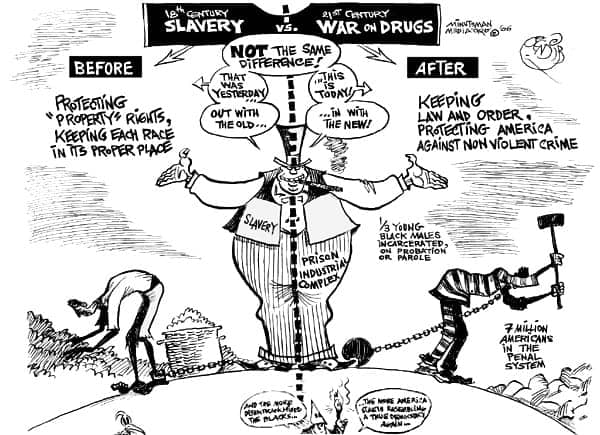by Noah Frigault and Zoe Polk

Last year, on April 14, 2011, the Human Rights Commission voted unanimously to join the Reentry Council of San Francisco and send a letter to the San Francisco Board of Supervisors and the mayor urging them to develop and enact legislation to prohibit discrimination in San Francisco against people with prior arrests and/or convictions – many of whom are low-income people of color targeted in their communities by discriminatory police practices.
For example, in California, African Americans are 10 times more likely than whites to be imprisoned for possession of marijuana, despite similar drug use rates across color lines. In 2006, African Americans were arrested in San Francisco for drug offenses at five times the rate of African Americans statewide and at 16 times the rate of other races in the City. Young African American women ages 10-29 were 12 to 21 times more likely to be arrested for drug felonies. When compared to women of other races in their age groups, African American women ages 18-69 were 25 to 30 times more likely to be arrested for drugs.
In 2006, African Americans were arrested in San Francisco for drug offenses at five times the rate of African Americans statewide and at 16 times the rate of other races in the City.
The hearing will examine the lifetime impact of drug conviction on employment, housing opportunities, education, family, community and access to health programs. As the result of a felony conviction, people are ineligible to vote while they are in prison, ineligible for public housing and food stamps for the rest of their lives, unable to receive federal financial aid for college, and subject to legalized discrimination in employment, housing, and parental rights, among other impairments.

According to Executive Director Theresa Sparks, “Across the country, religious leaders, community organizations, public safety experts, Republicans and Democrats are examining how effective the War on Drugs has been. People are asking questions about the impact it has had on families, crime, neighborhoods and civil rights. We hope to explore those impacts in this hearing.”
The HRC has invited speakers from the American Civil Liberties Union, the Youth Commission, All of Us or None, the S.F. Drug Users’ Union, the Lawyers Committee for Civil Rights and the Immigrant Legal Resource Center, among others, to attend and give testimony. In addition, the HRC is actively seeking community members to share their stories and recommendations in public comment.
During public comment, anyone who shows up and fills out a comment card will be given two minutes to air their views to all present, including all of the Human Rights Commissioners and influential community leaders the HRC has invited to attend. If you’re not able to make it to the hearing, consider submitting written testimony. This testimony will be used after the hearing in preparation for a report the HRC will present with recommendations to the City. Written Testimony Forms are available upon request and will be available at the hearing.
The hearing will be held at 5:30 p.m. on April 12, in Room 250 of City Hall. For more information, as well as an opportunity to submit written testimony online, visit www.facebook.com/HRChearing.
Noah Frigault, a student at Hastings College of the Law and an intern at HRC, can be reached at noah.frigault@sfgov.org. Zoe Polk, a supervisor at HRC, can be reached at zoe.polk@sfgov.org.





